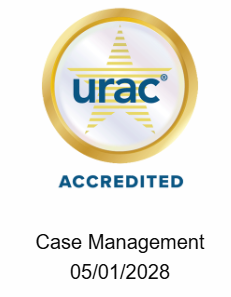By Renee Dain, Sr. VP, Communications and External Affairs
Whether you are a patient, caregiver, advocate, or a case manager, managing or supporting complex medical conditions can be overwhelming. The constant stress of managing appointments, medications, and unpredictable symptoms can leave little time for self-care. You may find yourself worrying about the future, feeling frustrated with your limitations, or struggling to stay positive. When this happens it’s important to remember that mental health is just as important as physical health. In fact, the two are deeply interconnected. That is why finding ways to stay mentally strong and balanced is so important.
The good news is that with the right strategies and support, you can care for yourself while caring for others. This blog will dive into how complex health conditions impact mental wellness, share helpful tips for maintaining balance, and provide strategies for managing personal and professional life when health challenges are in play.
- How do complex medical conditions affect mental health?
Complex health conditions can cause stress, anxiety, and even depression for both patients and caregivers. The uncertainty about treatment outcomes, frequent hospital visits, and daily management of symptoms can take an emotional toll. It’s important to acknowledge these feelings and seek support when needed.
- What are some practical tips for maintaining mental wellness?
There are many ways to protect your mental health:
- Acknowledge your emotions: It’s okay to feel frustrated, anxious, or sad. Allow yourself to process these feelings instead of pushing them aside.
- Seek support: Whether through therapy, support groups, or simply talking to friends or family, connecting with others can help alleviate feelings of isolation.
- Prioritize self-care: Just as you schedule medical appointments, carve out time for activities that bring you joy or relaxation. This could include reading, meditation, hobbies, or gentle exercise.
- Set realistic goals: Focus on small, achievable goals rather than trying to tackle everything at once. Celebrate your victories, even the small ones.
- Practice mindfulness: Techniques such as deep breathing, meditation, or yoga can help calm the mind, reduce stress, and improve emotional resilience.
Maintaining mental wellness is important for everyone involved, whether you are the patient, caregiver, advocate, or case manager. Here are some practical tips tailored to different roles:
For Patients: Focus on self-care, stay connected with loved ones, and reach out for emotional support.
- For Caregivers: Set boundaries, take breaks, and do not hesitate to ask others for help.
- For Advocates and Case Managers: Practice active listening and managing your own stress through mindfulness techniques or regular physical activity.
How can I balance my personal and professional life while managing health challenges?
Balancing your health with work and personal life can be challenging, but it is possible with a few strategies.
- Start by being open about your health with your employer or coworkers so they can offer support and flexibility.
- Set realistic goals for yourself to avoid burnout, and create a schedule that allows for breaks, medical appointments, and rest.
- Don’t be afraid to delegate tasks at home or work when you’re feeling overwhelmed. Prioritize self-care and use technology to stay organized and on track.
- Learn to say no when necessary, and seek support from others, including professionals if needed.
- Most importantly, be kind to yourself and celebrate the small successes along the way.
Closing Thoughts
Taking care of your mental health is just as important as managing medical conditions. By staying informed, practicing self-care, and finding the right support, you can navigate the challenges more effectively. Keep these strategies in mind and remember that you are not alone on this journey. We are here to help. For more in-depth information and support, join our upcoming Community Enrichment Series Webinar on Tuesday, January 21st at Noon – 1:00 p.m. for our Journey to Wellness: Balancing Body and Mind webinar. Our presenters Megan Bazzett, MS, CPRP, CFRP, Director, Community First Programs, and Celinda Carr, LCSW-C, CCM, Program Director, REM Program for The Coordinating Center will talk about:
- How complex health conditions can impact mental well-being;
- Tips for maintaining mental wellness from different perspectives (e.g., patient, caregiver, advocate, case manager); and,
- Strategies for balancing personal and professional life while managing health challenges.
Click HERE to register for this webinar.







